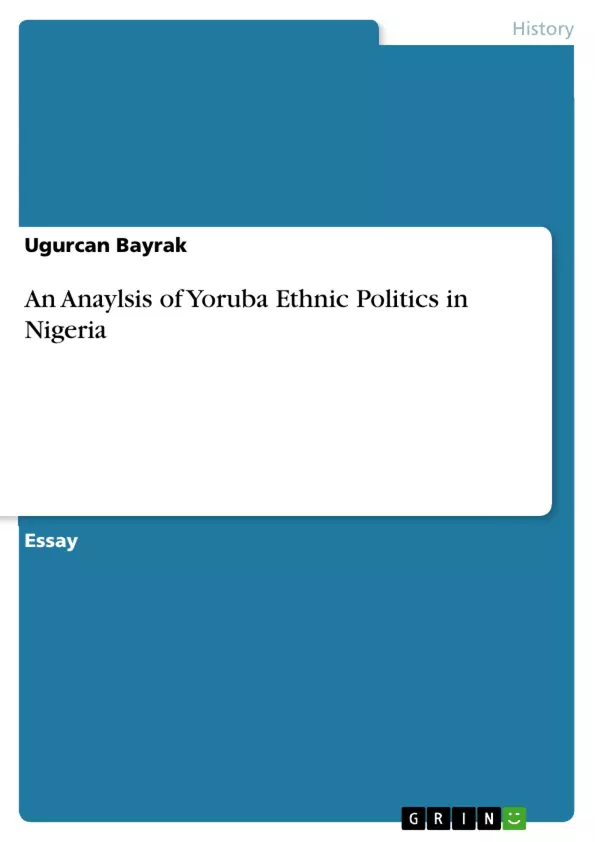This paper delves into the complexities of Yoruba nationalism and ethnic politics, exploring how Yoruba identity has shaped Nigeria's past and present political landscape. Understanding the dynamics of Yoruba nationalism is crucial for comprehending the broader socio-political dynamics within Nigeria.
Nigeria, with its vast population, abundant natural resources, and diverse ethnic landscape, faces significant challenges in navigating its complex socio-political terrain. The country's ambition to assert itself as a dominant political force is particularly influenced by its three largest ethnic groups: the predominantly Muslim Hausa-Fulani in the north, the predominantly Christian Igbo in the southeast, and the partially Muslim and Christian Yoruba in the southwest. The Yoruba, comprising about 21% of Nigeria's population, are known for their cultural, political, and religious dynamism, with significant presence in states like Oyo, Ogun, Lagos, and beyond.
The Yoruba people, although not a homogeneous group, share a common language, culture, and historical heritage, tracing their origins to the mythological realm of Odua. Historically, the Yoruba have endured challenges such as civil wars, the slave trade, and colonial rule, yet they have remained influential in Nigerian politics and society.
Inhaltsverzeichnis (Table of Contents)
- Introduction
- The History of British Nigeria in Yorubaland
- Nigerian Decolonization and Biafran War
- Yoruba Identity and Politics
- Pre-Colonial Yoruba Identity and Politics
- Yoruba Politics from 1900 to the 1940s
- Post-Colonial Yoruba Nationalism and Politics
- Conclusion
Zielsetzung und Themenschwerpunkte (Objectives and Key Themes)
This work examines the complexities of Yoruba nationalism and ethnic politics in Nigeria. It aims to explain how Yoruba nationalism has shaped the past and recent politics of the country.
- The historical background of Yoruba identity and politics, both pre-colonial and during British rule.
- The impact of British colonialism on Yoruba society and politics.
- The rise of Yoruba nationalism in the context of Nigerian decolonization.
- The role of Yoruba politics in shaping the political landscape of Nigeria.
- The challenges and complexities of ethnic politics in Nigeria.
Zusammenfassung der Kapitel (Chapter Summaries)
- Introduction: This chapter sets the scene by providing an overview of Nigeria's ethnic, religious, and political landscape. It highlights the importance of Yoruba people and their significance in Nigerian politics.
- The History of British Nigeria in Yorubaland: This chapter traces the history of British involvement in Yorubaland, starting with early trade relations and culminating in the establishment of British colonial rule. It explores the impact of British policies on Yoruba society, including the introduction of direct taxation and the spread of Christianity.
Schlüsselwörter (Keywords)
The main keywords and focus topics of the text include Yoruba nationalism, ethnic politics, Nigerian decolonization, British colonialism, and Yoruba identity.
- Quote paper
- Ugurcan Bayrak (Author), An Anaylsis of Yoruba Ethnic Politics in Nigeria, Munich, GRIN Verlag, https://www.hausarbeiten.de/document/1449062


